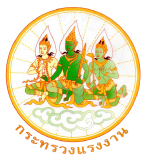In August 2011, the Association of Malaysian Spas (AMSPA) held a meeting during which relevant public officials made known spa business regulations and the growth trend of the spa industry in Malaysia to spa operators.
Malaysia’s Ministry of Tourism, a main agency which has an authority to consider issuing a spa business license for a spa operator – along with other local officials of Ministry of Housing and Local Government, revealed that Malaysia has a new classification system of spa business which is similar to the one in hotel industry, nothing that the new system was proposed by the ministry to the National Council for Local Government, chaired by Tan Sri Muhyiddin Yassin, Deputy Prime Minister, on 2 September 2010.
The star classification is adopted in Malaysia’s spa industry, rating a spa from one star to five star. In reflexology industry, each business is classified in three categories: Silver, Gold, and Platinum. Spa or reflexology operator can contact Ministry of Tourism’s registrar for registration, license application, and business rating. For business rating, officials of Ministry of Tourism, Ministry of Public Health, Ministry of Human Resource, and Ministry of Housing and Local Government to evaluate and rate the business.
They will use six criteria for the classification including 1) Statutory Compliance, 2) facilities and equipments, 3) Products, Spa Treatments, and Wellness Program, 4) Standard Operating Procedures, 5) Staff, and 6) Qualitative and Aesthetic Requirement.
As of today, a total of 156 spa operators have submitted their application with the Ministry of Tourism for the classification of their businesses, of which 24 are ranked four stars, 28 three stars, 20 two stars, and 9 one stars. Thirty spa businesses are given no rating while 40 are still under the evaluation.
On the employment of migrant workers in spa industry, the government sets the following requirement for work permit: 1) worker must work in a three-star spa business which is approved by the Ministry of Tourism, 2) Work permit will be issued based on the real demand of labour, calculating on the therapist: bed ratio of 3:1 and on the employment ratio of local: migrant worker of 3:1, 3) the minimum wage of a migrant worker is set at 1,500 ringgit (a minimum wage of worker in spa therapist is 1,700 ringgit).
It is found that due to an attractive income, Thai therapists continues going to work in Malaysian spa business both legally and illegally in several Malaysian states including Kuala Lumpur, Selangor, and Johor. The increase in the influx of Thai workers can also be attributed to the recent Malaysian government’s amnesty program for illegal foreign labour as the workers hope to grab an opportunity to legalize their employment in the country.
Nevertheless, due to strict requirement, it is expected that the Ministry of Tourism will only issue work permit for illegal workers who work in a spa that has passed the classification.
It is also believed that the adoption of the new system will help improve the quality of spa businesses in Malaysia, restore the spa industry’s good image, and heighten standard of the industry in Malaysia to meet the preference of both local and foreign customers, which will boost an employment demand in the industry as a result. In addition, Thai workers will have an opportunity to work in a highly-qualified workplace and improve their skills; hence make Thai massage style better recognized in an international stage.
Office of Labour Affairs in Malaysia hopes that relevant parties can learn from the Malaysia’s government’s spa management policy and that Thai job-seekers who wish to travel to work in Malaysia learn the employment situation and trend in the spa industry in the country.




